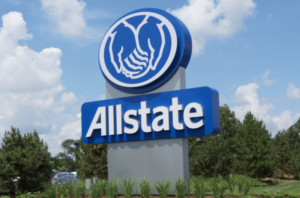What is better a high or low deductible?
What is better a high or low deductible?
Low deductibles are best when an illness or injury requires extensive medical care. High-deductible plans offer more manageable premiums and access to HSAs. Aug 25, 2021
Can I cancel Aspca pet insurance at any time?
The ASPCA Pet Health Insurance program has next-day cancellation with pro-rated refund depending on if you have received a claim. Cancellation may be dependent on you providing 60-day notice to the insurance company.
How do I cancel my Aspca dog insurance?
Customer Satisfaction. If you need to cancel your policy please email us at cservice@aspcapetinsurance.com and advise the reason for cancelation.
Does my insurance cover pet meds?
When it comes to prescription drugs, most pet insurance plans cover at least some medication. This includes medication associated with a covered accident or illness. Most preventative medications, such as flea and tick treatment, are only covered if you have a wellness rider on your plan. Apr 2, 2021
What is the waiting period for Aspca?
a 14-day All applicable treatments related to accidents and illnesses are covered after a 14-day waiting period. Anything that occurs within these first two weeks won’t be paid for by the policy benefits.
How soon after Pet insurance can you claim?
around 14 days How soon can I claim on pet insurance? As you can see from our list of waiting periods, you will usually have to wait around 14 days before you can claim on a pet insurance policy for an illness. The waiting period for accident claims is shorter – usually it’s 48 hours. Dec 17, 2021
Does Aspca cover hip dysplasia?
Hereditary and Congenital Conditions ASPCA® Pet Health Insurance plans cover hip dysplasia no matter how old your pet is when they are enrolled.
How much money actually goes to animals from Aspca?
What percentage of my donation goes to the animals? Based on our latest available financial data, approximately 77 cents of every dollar we spend advances the ASPCA’s mission through lifesaving programs and services around the country. More information on how donations are put to work can be found here.
What is the salary of the CEO of the Aspca?
According to tax returns, ASPCA CEO Matthew Bershadker received $852,231 in 2019 and the ASPCA had over $20 million in offshore accounts! According to a Charity Navigator study, the average nonprofit CEO’s pay is $123,000.
Does the Aspca actually help animals?
The ASPCA kills animals. It’s one thing for a local pet shelter to put down dogs and cats due to overcrowding and limited resources. It’s tragic, but most people understand. However, it’s harder to justify for a group as wealth and influential as the ASPCA.
Is Apoquel covered by pet insurance?
What about my pet’s allergy medications, are they covered? Yup. As long as the allergy isn’t considered a pre-existing condition, your pet’s allergy meds, like Apoquel and Cytopoint injections, are covered.
Do pets best cover heartworms?
Limited coverage for parasite testing and prevention is available with our optional pet wellness plans. Examples of parasites: fleas, ticks, heartworms, roundworms, whipworms, hookworms, tapeworms, giardia, coccidia, ear mites or scabies. Sep 19, 2014
What is an annual deductible?
Here’s what it actually means: Your annual deductible is typically the amount of money that you, as a member, pay out of pocket each year for allowed amounts for covered medical care before your health plan begins to pay. This excludes certain preventive services that may be automatically covered.
Do all pet insurances have a waiting period?
There are no pet insurance plans available without waiting periods. Every pet insurance company has waiting periods before your animal can be covered for care. The reason is simple: pet insurance companies want to make certain people buy coverage before their animals get sick. Mar 18, 2022
How much does pumpkin pet insurance cost?
How much do Pumpkin policies cost? Pumpkin’s premium rates can vary depending on each pet owner’s location and their animal’s species, breed, age, and location. We found average prices for dogs were high at around $50–$80 per month, while average prices for cats were around $30–$50 per month.






